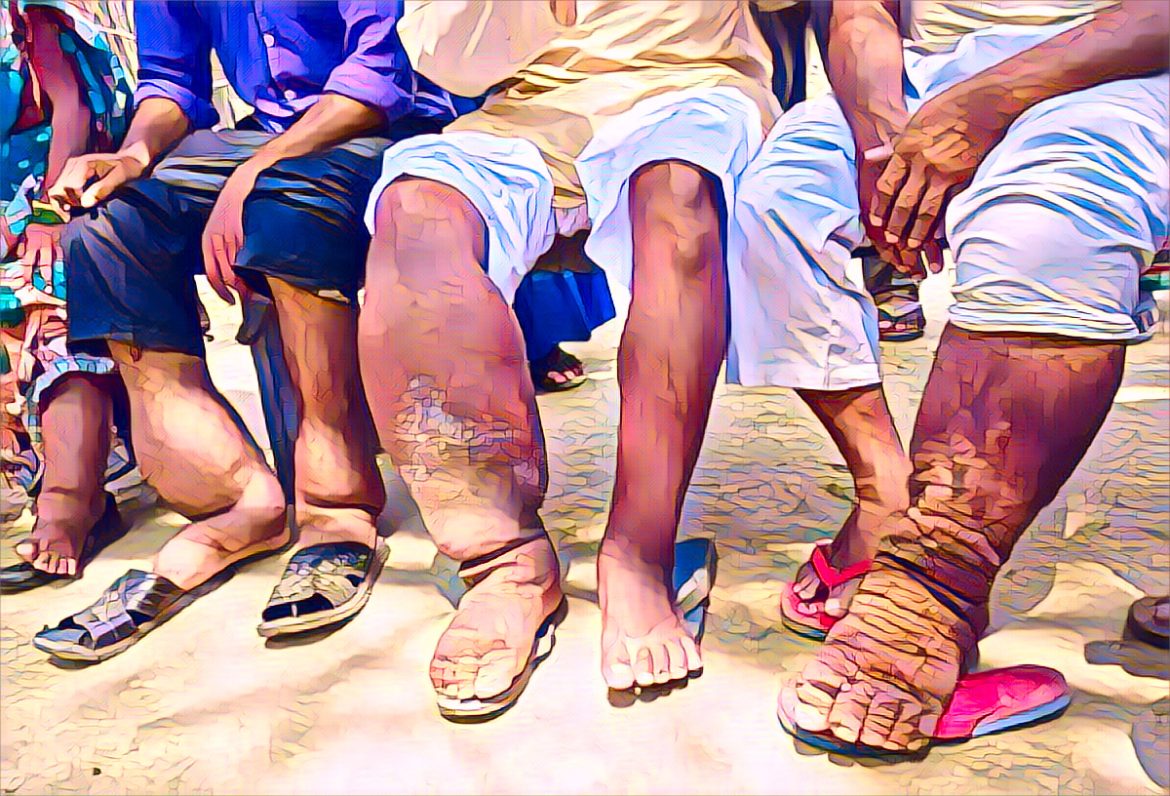KEY POINTS
- An outbreak of elephantiasis has been reported in Mhondoro Ngezi and Kariba.
- The Health Ministry has launched a 10-day mass drug program to control the spread.
- Experts stress the importance of health education, community involvement, and prevention.
In response to an elephantiasis outbreak in the province of Mashonaland West, the government has been urged to take action.
Infectious mosquitoes transmit the parasite disease elephantiasis, which affects the lymph nodes and lymph arteries. There have been reports of cases in Mhondoro Ngezi and Kariba.
The outbreak was found after a few students in rural Kariba started exhibiting symptoms of the disease. Legislator Shine Gwangwava of Kariba states that following certain examinations, around 21 students who were assessed tested positive for the illness.
Primary schools in Kasvisva, Msambakaruma, Kanyati, Negande, and Kadziro each had three instances, while Kalundu, Mola, and Kauzhumba reported two cases apiece.
The fact that the illness affects multiple generations disturbs us. Gwangwava stated that the virus can have some long-term consequences. “It has impacted a large number of people in the Zambezi Valley, where certain tributaries serve as excellent mosquito breeding habitats.”
Government’s response: Mass drug administration
The Health and Child Care Ministry has decided to implement a 10-day mass drug administration program in the impacted areas as a result of the findings.
According to a report by Newsday, Chief Negande, a Kariba traditional leader who was born in Kausu Mpofu, stated that communities ought to follow the immunization schedule. The conventional leadership is in favour of the action if the research is completed and medical professionals determine that it is appropriate to give medication.
“We implore communities to embrace the medication without opposition, as it is beneficial to our overall health.” Mashonaland West provincial health promotion officer George Kambondo announced that the mass immunization campaign will begin on Monday.
“A study carried out in Kariba revealed a significant occurrence of lymphatic filariasis,” Kambondo stated, imploring the impacted areas to take part in the free mass medicine delivery program.
Health experts call for community engagement and prevention
“Three medications will be administered to people to prevent this neglected tropical disease.” According to Itai Rusike, executive director of the Community Working Group on Health, the government should promote knowledge exchange and active community involvement in order to work toward the eradication of neglected tropical diseases (NTDs).
“Health education and community awareness campaigns regarding neglected tropical diseases, like lymphatic filariasis, are imperative,” the speaker stated.
In order to handle disease outbreaks and community reactions, community health professionals must have the necessary tools and training regarding non-communicable diseases (NTDs).
“Communities should practice individual and collective health hygiene by fostering a culture of discipline starting at the family level.” In order to promote the culture of NTD prevention and control, there is a need to improve community knowledge, participation, and self-reliance. Rusike also demanded more aggressive indoor residual spraying programs and the distribution of treated mosquito nets.
Elephantiasis, also known as lymphatic filariasis, continues to pose a threat to approximately 882 million people in 44 countries, according to the World Health Organization (WHO).
To halt the development of this parasitic infection, preventive treatment is necessary. According to a WHO statement on its website, “Lymphatic filariasis can be eliminated by stopping the spread of infection through preventive chemotherapy with safe medicine combinations repeated annually.” “Since 2000, over nine billion treatments have been administered in total to halt the spread of infection.”


